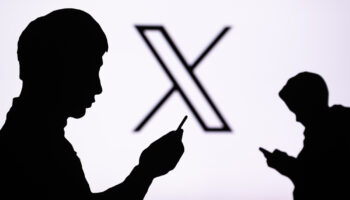Vodafone sells its share of Verizon Wireless for $130 billion
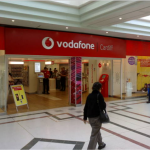
Vodafone, the UK-based communications company, has sold its 45 percent share of Verizon Wireless to US telecoms group Verizon Communications in one of the biggest deals in corporate history.
The $130 billion deal was announced yesterday after the close of the London stock market but Vodafone's shares had risen 3.4 percent during the day on the back of rumours that it was going to take place. Around 70 percent of the proceeds will be returned to shareholders in a special bonus payout during the first quarter of 2014. Investors will have a choice of receiving this in cash or Verizon shares. Vodafone chief executive Vittorio Colao describes the payout as being a reward, "for the long term support of our strategy since our initial investment".
Steve Ballmer addresses Microsoft employees, following acquisition of Nokia's Devices & Services
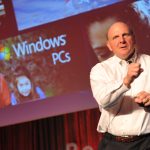
Earlier today, Microsoft announced that it is buying Nokia's Devices & Services business and licensing the rights to use the Finnish company's patents, in a deal which will cost the software giant a mere €5.44 billion in cash. Microsoft will pay €3.79 billion for the phone-making arm and another €1.65 billion to take advantage of the patents. Also included in the terms of the arrangement is a separate HERE license, which will give Microsoft the right to use Nokia's mapping services in its products.
Following the announcement, Microsoft CEO Steve Ballmer sent out an email to the software giant's employees, explaining what the purchase of Nokia's phone-making business entails for Microsoft's corporate structure as well as its future strategy. Ballmer previously revealed that he will retire within a year. Coupled with the latest news, this will undoubtedly further fuel the already heated debate, surrounding his successor.
Cloud computing helps SMEs compete

Adopting cloud computing can help smaller businesses compete with larger organizations according to communications and data center specialist Node4. However, many have yet to embrace the full potential of the cloud despite the fact that it can give them a competitive edge.
Node4 says that making the switch from using a capital expenditure model to a pay-as-you-go operational expenditure plan opens up opportunities to use enterprise grade IT without the hassle of maintenance.
Microsoft to buy Nokia's phone business for just €3.79B

That's not a bad deal -- far from it, in fact. Nokia is leading the pack on Windows Phone sales, has a broad patent portfolio and a former Microsoft executive -- Stephen Elop -- as CEO. The software giant is buying the Finnish company's Devices & Services business -- its phone arm -- and the right to use its patents for just €5.44 billion. Yes, that's right -- just €5.44 billion.
That is considerably less than what Microsoft paid for Skype -- $8.5 billion -- in 2010. Both deals involve trading cash, but whereas the latter has yet to bear fruit across all of Microsoft's services, the former is actually at the forefront of turning Windows Phone -- the software giant's smartphone operating system -- into a solid mobile proposition and competitor to Android and iOS. Not a bad deal.
Why I love Windows 8.1
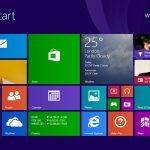
Eighth in a series. It feels weird admitting this. Akin to declaring a fondness for Piers Morgan, or dancing in public to One Direction, almost. But I like Windows 8.1. A lot.
I was never a fan of Windows 8. In fact I'd go so far as to say I detested the Modern UI which on my uber-fast desktop system simply got in the way when I was trying to work and slowed me down or tripped me up. Every time I wanted to do something simple like launch a program it insisted on throwing me out of the desktop and into a weird tiled nightmare I couldn't wait to wake up from.
Acer unveils R7 with 'Ezel hinge'
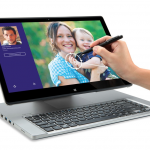
New design concepts are certainly not in short supply these days, with manufacturers throwing just about everything against the wall in hopes that a product sticks. This has resulted in some rather weird concepts seen at the annual Consumer Electronics Show in Las Vegas every January. A number of those products never see the light of market and, honestly some really shouldn't.
Now Acer unveils a new model of an idea that apparently worked -- the Aspire R7, shown off today at IFA, a trade show held in Germany -- is an update to a model already on the market. The notebook comes with a rather unique hinge that allows for a range of different positions. The notebook is clearly intended for more of an art design crowd thanks to the screen movements and the included pen for the touchscreen.
PeaZip 5.1 simplifies scheduled archiving, improves bookmarks
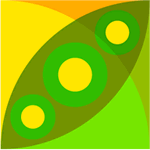
Cross-platform open-source archiving tool PeaZip 5.1 is here. Also available as a standalone 64-bit build and in portable format for Windows users, the latest version adds a new Schedule tab in machines running Windows Vista or later.
The new tab, which is fully integrated with the Windows Task Scheduler, makes it easier to create scheduled archiving and extracting tasks, such as backing up or restoring data from an archive at set intervals.
Windows Phone is a 'real adversary' to Android and iOS

Or is it? It's not often that I see Windows Phone linked to being a "key player" on the smartphone market (quite the contrary, if some pundits are to be believed). But, according to a new report from Kantar Worldpanel Comtech, it appears that Microsoft's operating system has established itself as a "real adversary" to Android and iOS. That appears to be no small feat.
Between May and July 2013, Windows Phones accounted for 8.2 percent of all smartphone sales in five major European markets -- France, Germany, Italy, Spain and UK. Compared to the same time-frame from last year (when it had 4.9 percent market share), the OS grew by 3.3 percentage points, or 67.34 percent. That is a sizeable increase, however one that did not lead to Windows Phone's market share hitting double digits in a larger region (which, in my opinion, is a noteworthy steppingstone for any podium contender).
Yahoo shuts up shop in China

Yahoo China is no more. It has ceased to be. It has expired and gone to meet its maker. It is bereft of life. It rests in peace. The website now displays a goodbye message before redirecting to the news site Toaboa. As the message explains the closure comes as a result of a deal between Yahoo and the Chinese Alibaba Group.
The relationship between the two companies dates back to 2005 when Yahoo bought a 40 percent share of Alibaba. An agreement in 2012 paved the way for the closure of Yahoo China, and this had already been preceded by the closure of Yahoo Mail in the country a couple of weeks ago -- again, customers were redirected to using an Alibaba service, Alimail.
5 big myths surrounding computer security and HIPAA compliance

For those in the States, the mad dash to compliance is unquestionably on. After years of taking a "wait and see" approach to Health Insurance Portability and Accountability Act (HIPAA) regulations surrounding medical office technology, healthcare providers (and related covered entities) are scrambling to get their systems and procedures in order. Big Brother has officially set a September 23, 2013 deadline for most new rules that put into place heightened protocols for how patient information (PI) is shared as well as how notifications about breaches need to be handled, among other things.
Naturally, a lot of my consulting clients in the healthcare industry are reaching out for professional help on how to get their IT systems in line as these deadlines approach. One of the biggest facets of the new HIPAA laws, which affects companies like mine that provide hands-on IT consulting, is that for the first time ever we are being considered "covered entities" in the same boat as the healthcare outlets themselves.
Google Chrome turns five -- Happy Birthday!

Kids and web browsers -- they grow up so fast these days. Seems like only yesterday that Google released its web browser to the public and set geek hearts aflutter with its speed and light footprint. Things have changed a bit, but many of us stick to the software as our browser of choice.
Google launched Chrome, in beta form, on September 2, 2008 for Windows only, and followed quickly with the source code as an open source project known as Chromium. The initial kickoff came in 43 different languages.
LG G Pad 8.3 aims to take on iPad Mini and Nexus 7
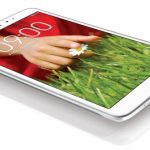
Forget the iPad, LG wants you to give the G Pad some love -- the G Pad 8.3 specifically. The company is not new to the world of tablets, though it has been some time since its last foray into the arena. The South Korean manufacturer posted a teaser video on YouTube just a few days ago but a new announcement reveals more details and confirms the imminent release of the successor to the Optimus Pad, the G Pad 8.3.
The tablet -- which surely deserves to be known as the Mexican horse tablet (El Gee Gee Pad) -- is due to debut at IFA in Berlin in the next few days, with a release pegged for Q4 2013. But it's the specs that really matter, and LG has unveiled a full breakdown of what we can expect from its latest handheld device.
The most popular stories on BetaNews this past week

Looking at the biggest stories on BetaNews from August, 25 - 31, 2013. For the second week running, Microsoft managed to steal many of the headlines. After going gold, RTM, or however Microsoft now wants to refer to it, Windows 8.1 was released to OEMs. Depsite reaching this important milestone, developers were… irked, shall we say, to learn that they will not be able to get their hands on the completed code until it is released in October. At least that would be the case had the bits not leaked online very quickly. It was a Chinese version that was made available for unofficial download first, but an English version wasn't far behind.
I have previously pondered the popularity (or otherwise) of the Surface Pro, and this week Derrick stood firmly behind Windows RT positing five reasons it is destined to succeed.
Microsoft and Google (don’t really) want to tell you more about government data requests

Sounds nice, doesn't it? Two big names have listened to the concerns of the people that matter -- their customers -- in the wake of the NSA debacle, and want to share more information with the public about precisely what information the government is asking them to hand over. If only it were that simple.
In a blog post on TechNet, Microsoft General Counsel Brad Smith reveals that both Microsoft and Google filed lawsuits back in June to try to force the government to permit them to publish details of data requested under Foreign Intelligence Surveillance Act (FISA) orders. Smith says they [the two companies] believe they have a "clear right under the US Constitution to share more information with the public".
Microsoft teams with Crackle to bring you exclusive movie

Crackle, the online streaming service from Sony, remains one of the competitors in today's growing and increasingly competitive market. Today the entertainment arm of Sony announced a new strategy. The company will partner with tech giant Microsoft for what both hope will be mutual benefit.
"Sony’s Crackle is the latest digital network to start producing its own original feature-length films, with next Thursday’s premiere of the martial arts flick Extraction. But antsy Windows Phone action junkies don’t have to wait: Crackle is giving us an exclusive early pass" reports Microsoft's Michael Stroh. Windows Phone customers are not the only one who will get this exclusive content -- Xbox Live and Windows 8 users will also benefit from the deal.
Most Commented Stories
© 1998-2024 BetaNews, Inc. All Rights Reserved. Privacy Policy - Cookie Policy.
